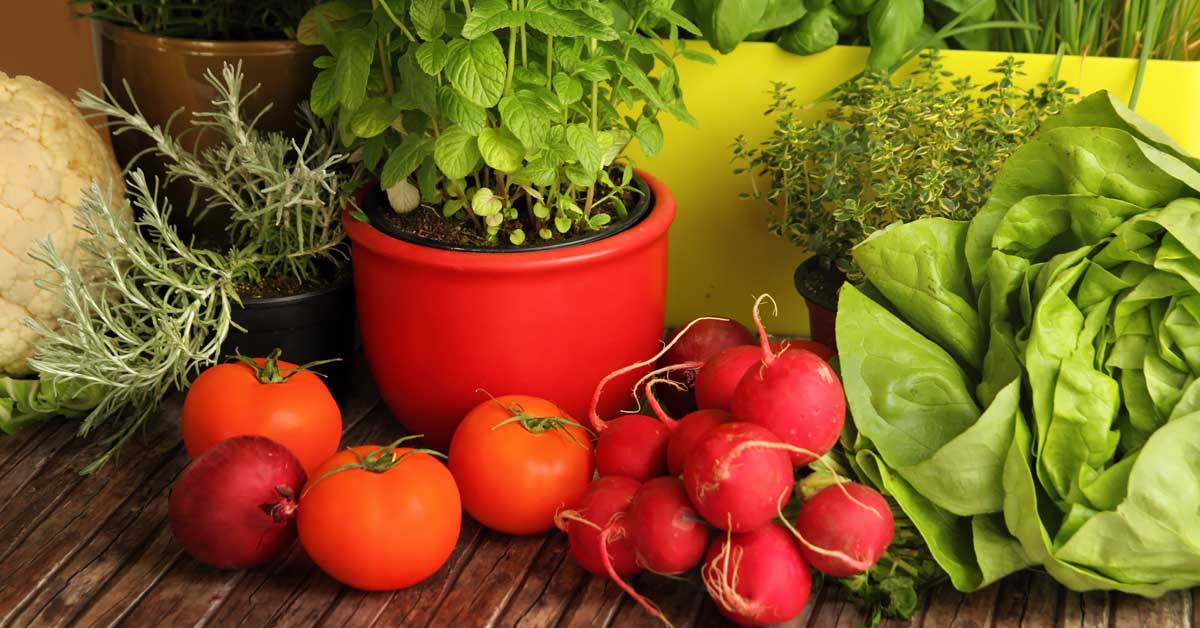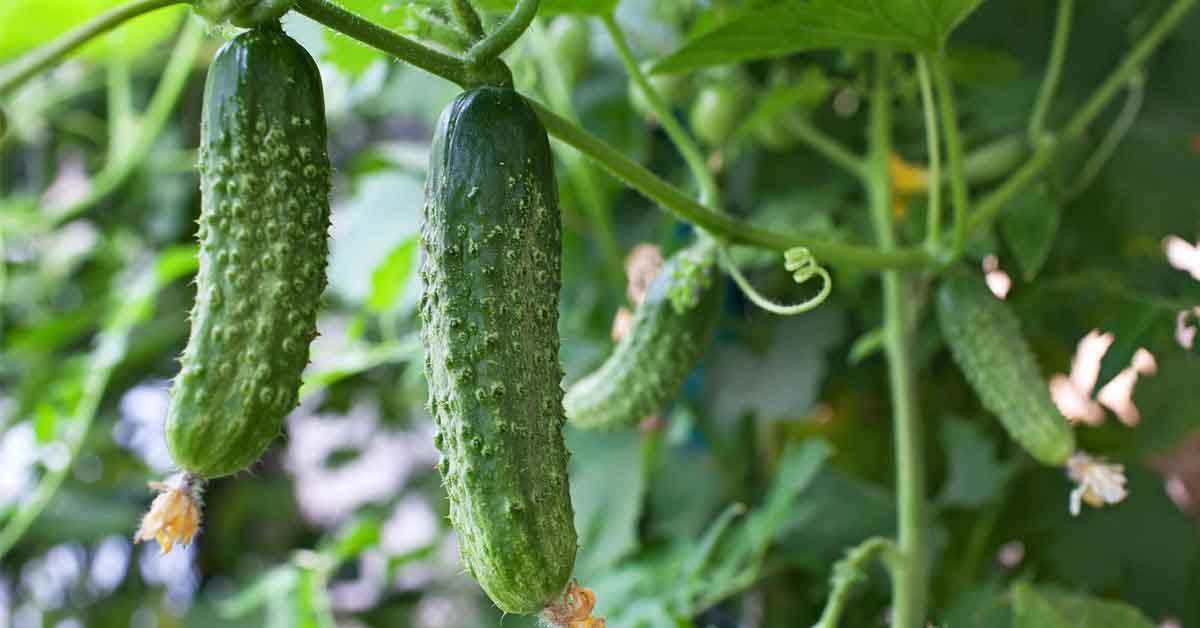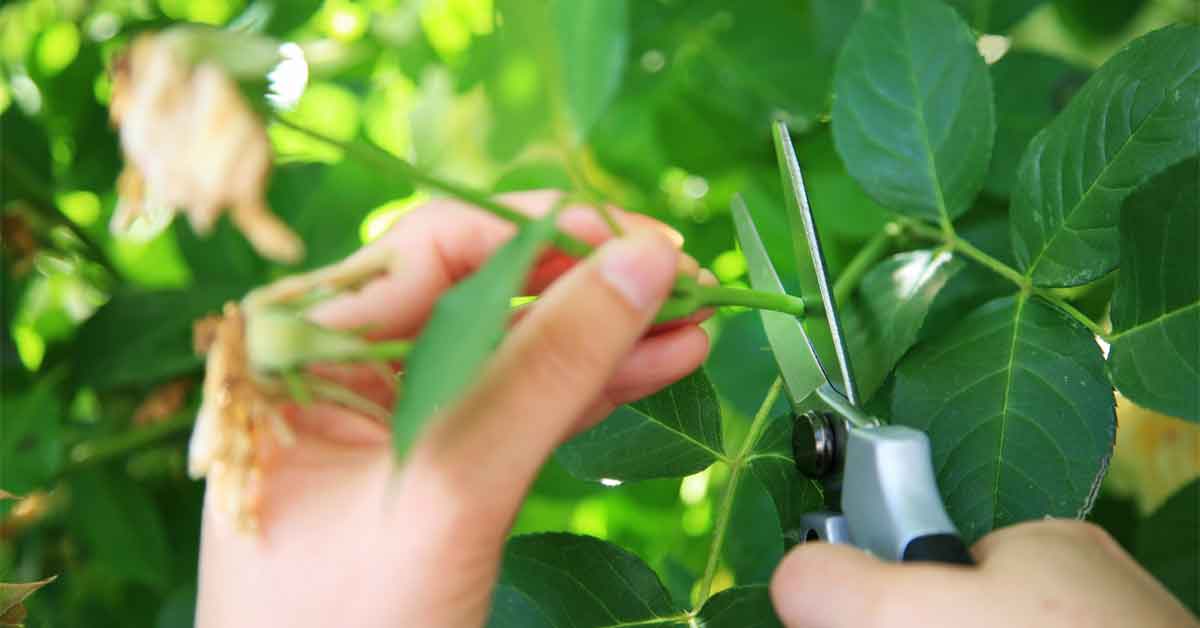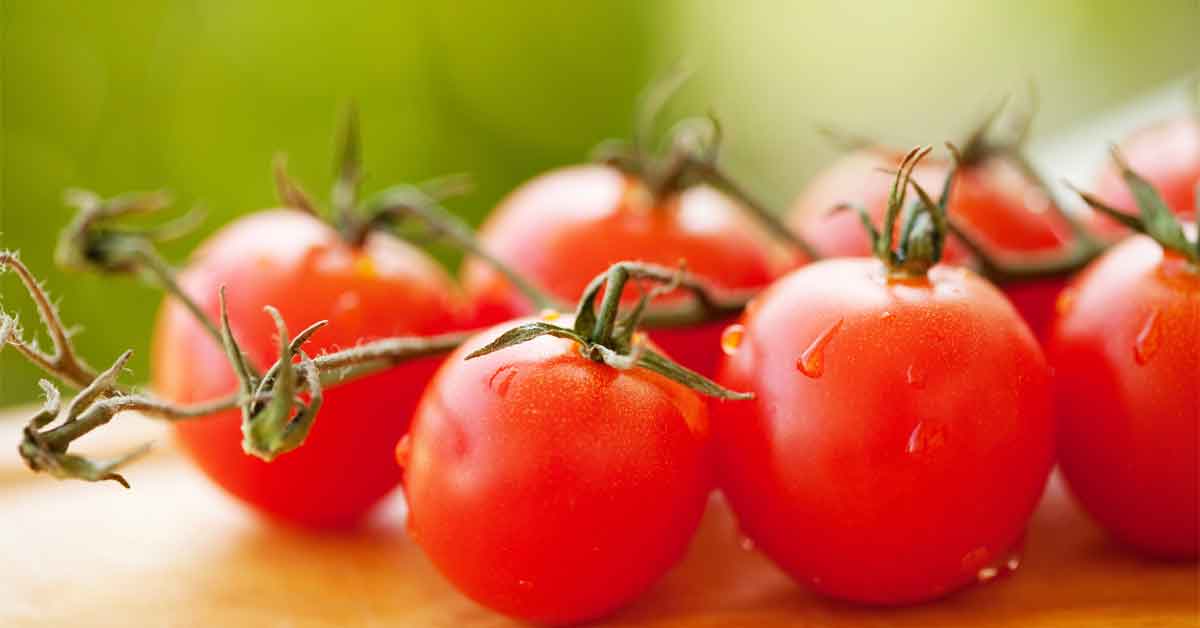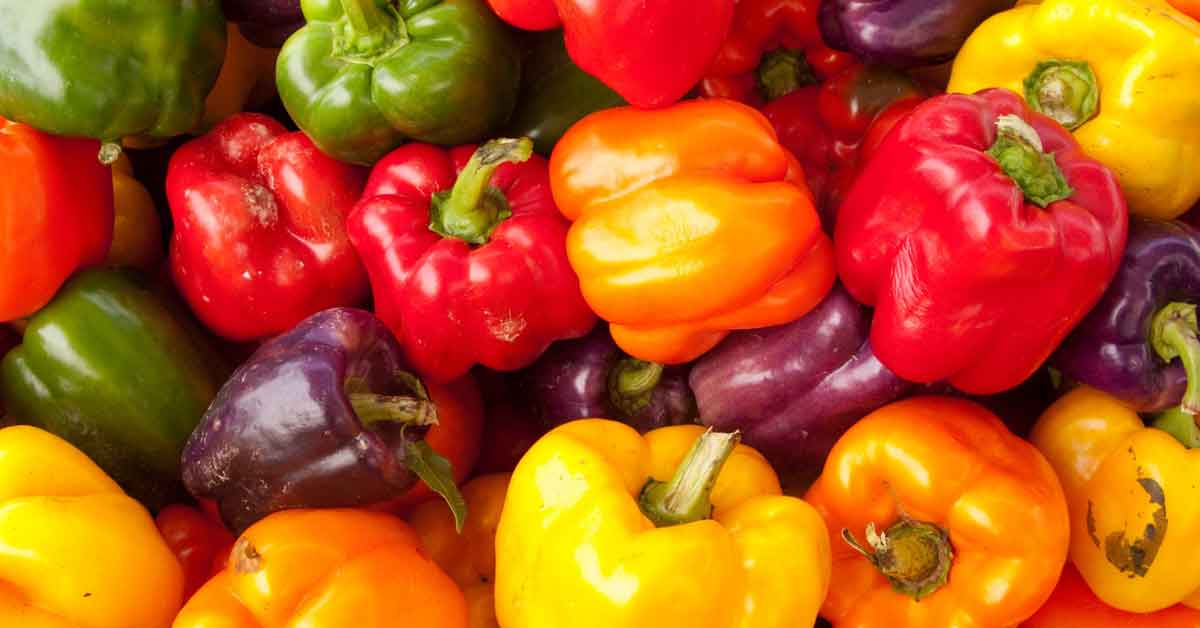How to Grow and Care for Vegetables, Fruit and Herbs in Containers
Gardens filled with vegetables and fruits aren't just for big yards. Most garden edibles and many fruit trees flourish in containers, turning the smallest spaces into productive garden spots. Even if your yard offers plenty of growing room, container edibles can add excitement and zest. Whatever your level of gardening experience — from beginner to seasoned pro — you can grow healthy and productive edibles as container gardens with these tips:
- Benefits of Growing Container Edibles
- Best Containers for Edible Plants
- Edibles to Inspire Your Planting Plans
- Care Basics for Productive Container Edibles
- Season's End Container Edible Finale
Benefits of Growing Container Edibles
One of the greatest benefits of container growing is the ability to create your very own garden in a small space, even on an urban balcony. You can choose containers to complement your décor, and you're not limited by the type of soil your yard may have. With containers, you can mix your own "perfect" growing medium to suit the plants you want to grow. For plants such as blueberries, which need acidic soil, you can give them exactly what they need right from the start.
Containers also keep you free from worries about weeds and nearby plants stealing nutrients away from your future crops. You can move containers easily to capture more sunlight or less, or to extend your growing time as the sun moves with the seasons. You also can enjoy the goodness and nutrition of homegrown edibles wherever you live.
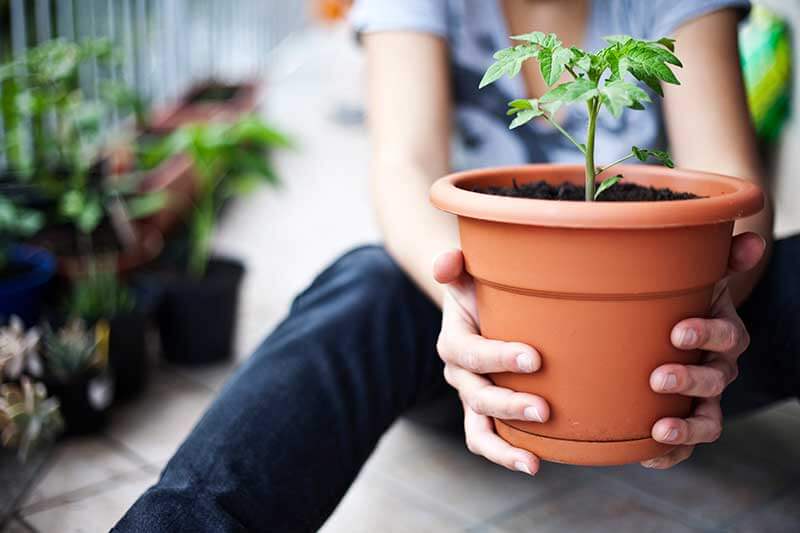
Best Containers for Edible Plants
Edibles are one category of plants where bigger pots are almost always better. For tomatoes, bell peppers, eggplants and similar fruiting veggies, choose large-size pots. Allow at least 12 inches or more in diameter and depth so roots have growing room. Bigger pots help maintain soil moisture and control fluctuations in soil temperatures, which also benefit edibles as they grow. Container-grown edibles must have good drainage. Pots should have several large drainage holes so excess water freely runs through. Roots of your edibles should never sit in soggy soil. Breathable pots, such as naturally porous terra cotta, help keep oxygen flowing through soil to waiting roots. For heat-loving tropical vegetables such as tomatoes, dark-colored pots absorb heat and help keep roots and soil warm.
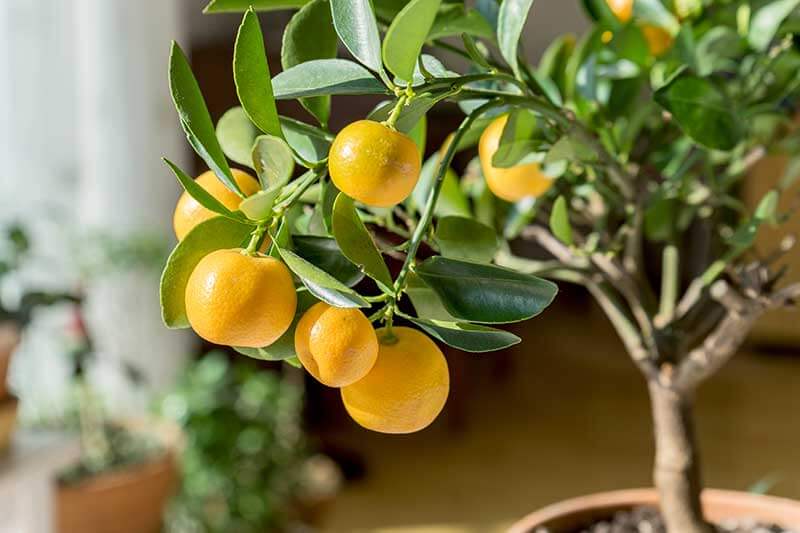
Edibles to Inspire Your Planting Plans
Most edible plants do very well in containers, provided they're well cared for and have room for healthy growth. Root crops, such as carrots and beets, can be grown from seed right in their pots. Without the lumps and bumps they often face in garden soil, they form near-perfect edible roots in prepared container soil. Fruit trees, from dwarf citrus to plump figs, excel in large patio pots. Lettuces and other greens make growing mixed greens for salads simple, even in shallow pots or hanging baskets.
Crops such as potatoes and sweet potatoes, which grow their fleshy, edible, rootlike "tubers" underground, do great in big, roomy containers. New varieties of blueberries, raspberries and blackberries, developed specifically for container growing, will thrive in patio pots. Vining plants, such as cucumbers, zucchinis and other squash, flourish in large pots. They'll take your garden skyward when you add trellises or other supports.
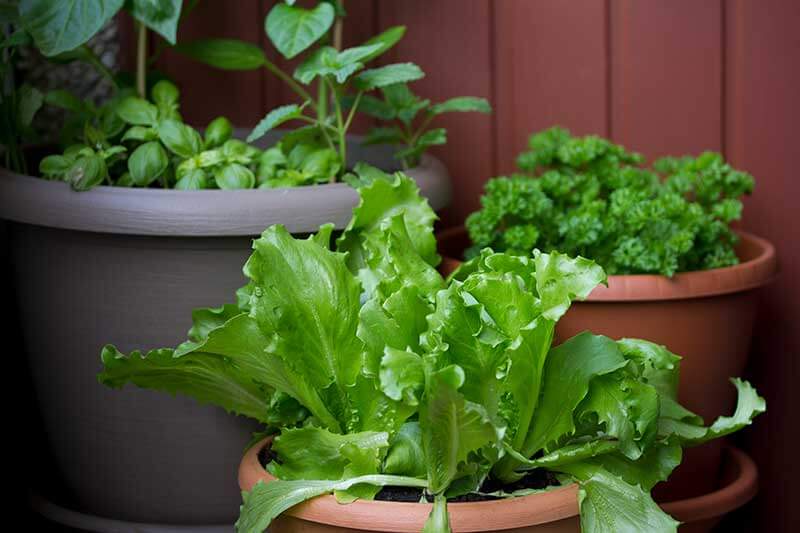
Care Basics for Productive Container Edibles
Container-grown vegetables, fruits and other edibles require the same things outdoor-grown edibles do. It's up to you to make sure you meet their needs:
- Plentiful light. Delicious, nutritious bumper crops of easy garden fruits and veggies depend on sufficient light. Six to eight hours of direct sunlight is the minimum for most crops. In general, the more light you give your edible container gardens, the better off your plants will be — and the more fruits and veggies you'll enjoy at your table. Move outdoor containers as needed when light patterns shift with the seasons. Indoors, place edibles close to sunny windows or give them extra lighting. Regular lights or grow lights will do.
- Healthy, nutritious soil. A gentle fertilizer that provides a rich natural source of nutrition, such as Alaska Fish Fertilizer 5-1-1, releases nutrients into the soil to enhance the strength and vigor of your potted edibles.
- Consistent water. Plump, juicy fruits and veggies need plentiful, consistent water. Fluctuating moisture can cause fruit to dry out, crack or burst. Because soil dries out faster in containers, monitor moisture closely. Overwatering can be worse than underwatering, so always check before adding more. Just stick your index finger down into the soil — it should feel moist and cool. If it's dry, water until excess runs through the drainage holes. If soil feels wet, make sure the holes aren't plugged, and then let it dry a day or two and check again.
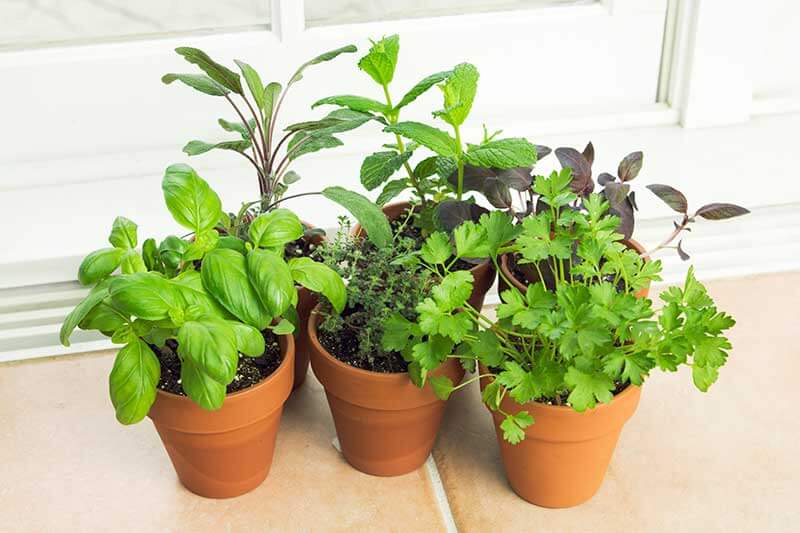
Season's End Container Edible Finale
As temperatures drop in fall, some container edibles need to move indoors, including potted herbs. Even hardy container plants will be killed or injured if left outdoors over winter. If you live in a cold region, your decorative containers may suffer damage, too.
Before moving plants inside, inspect them for diseases and insect pests. Preventive treatments with trusted products such as Daconil fungicides and Sevin garden insecticides prevent pests and diseases from moving indoors, too. Always match your plant and problem with plants and pests listed on product labels, and follow instructions for intervals between treatments and harvest. For example, treat tomatoes with Daconil Fungicide Ready-to-Use right up to harvest time. With Sevin Insect Killer Ready To Use2, allow five days between treatment and your tomato harvest.
Once nighttime temperatures drop below 50 degrees Fahrenheit, bring tender container edibles inside. For annual edibles you replace each year, it's time for container garden cleanup. Remove and dispose of all the old foliage to prevent diseases from overwintering. Then move your pots to protected areas so they're safe from damage and ready to go in spring.
Whether you're a beginning gardener or a seasoned veggie veteran, you can take on growing edibles in containers with confidence — and reap the rewards. GardenTech brands and the GardenTech blog are here to help you learn and enjoy the many benefits of gardening, including abundant harvests of healthy, homegrown container edibles.
Always read product labels thoroughly and follow instructions carefully, including guidelines for treatable plants, listed pests and pre-harvest intervals. Sevin is a registered trademark of Tessenderlo Kerley, Inc. Daconil is a registered trademark of GB Biosciences Corp. GardenTech is a registered trademark of Gulfstream Home and Garden, Inc.
Get Monthly Gardening Advice!

